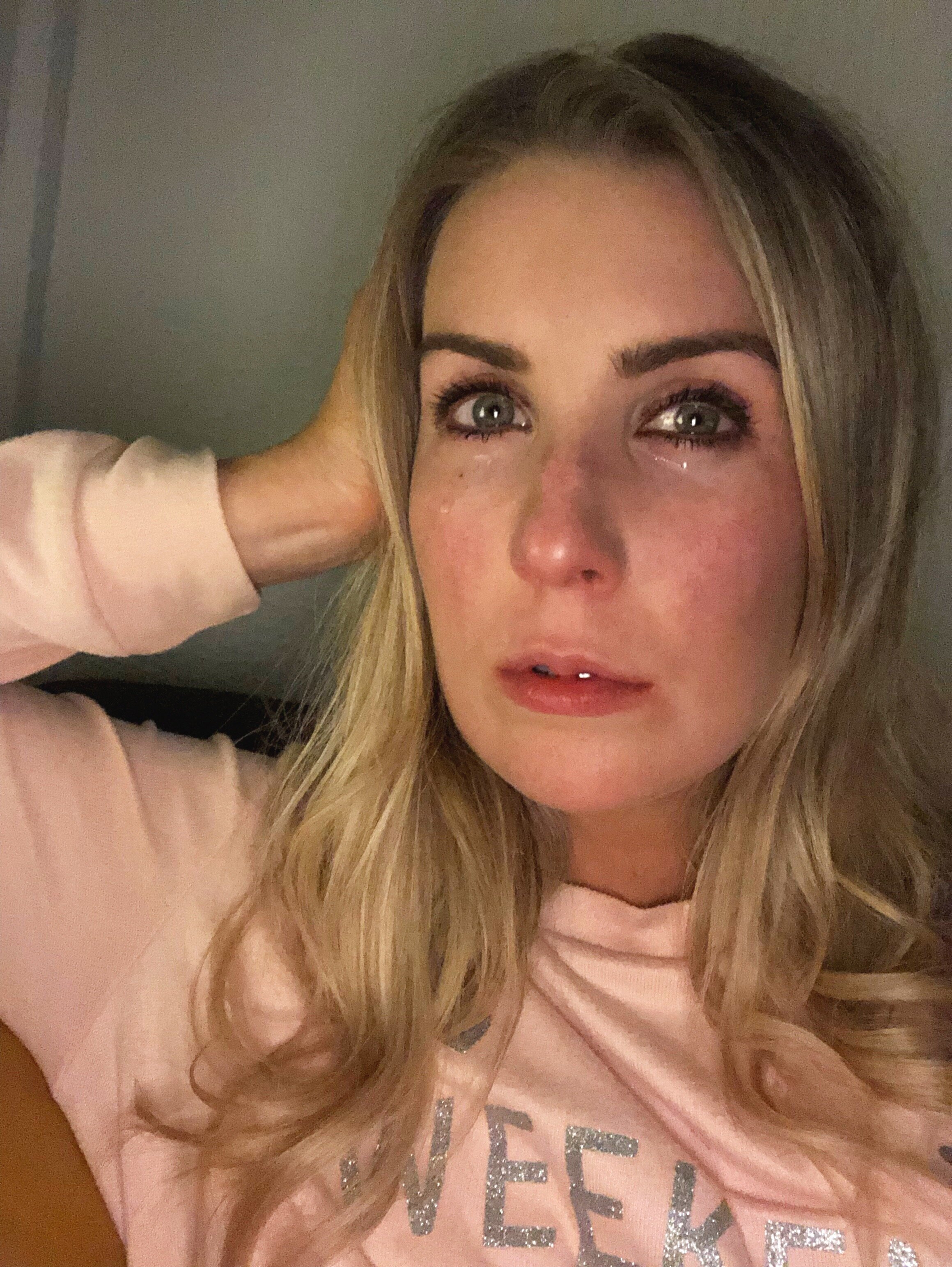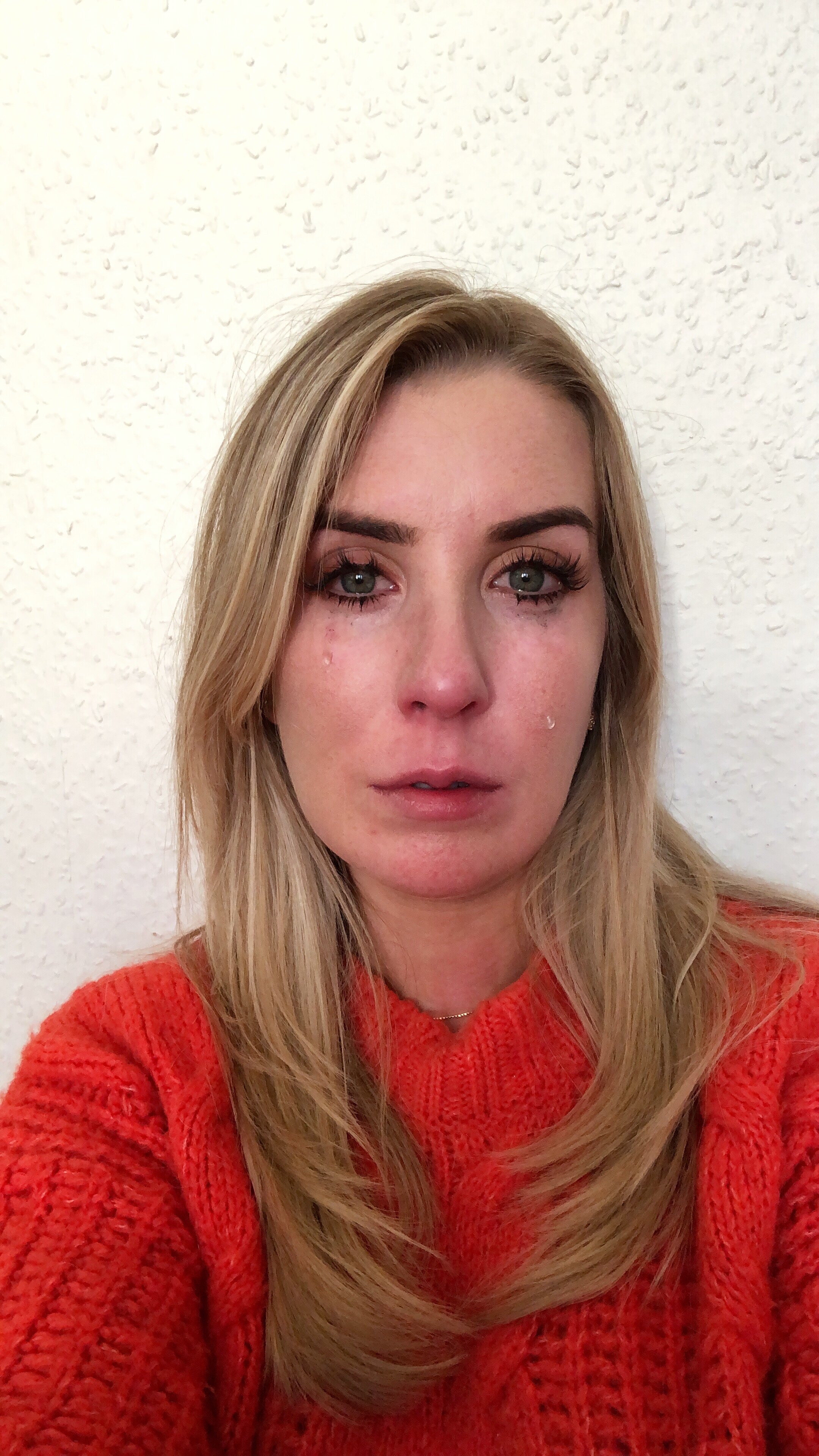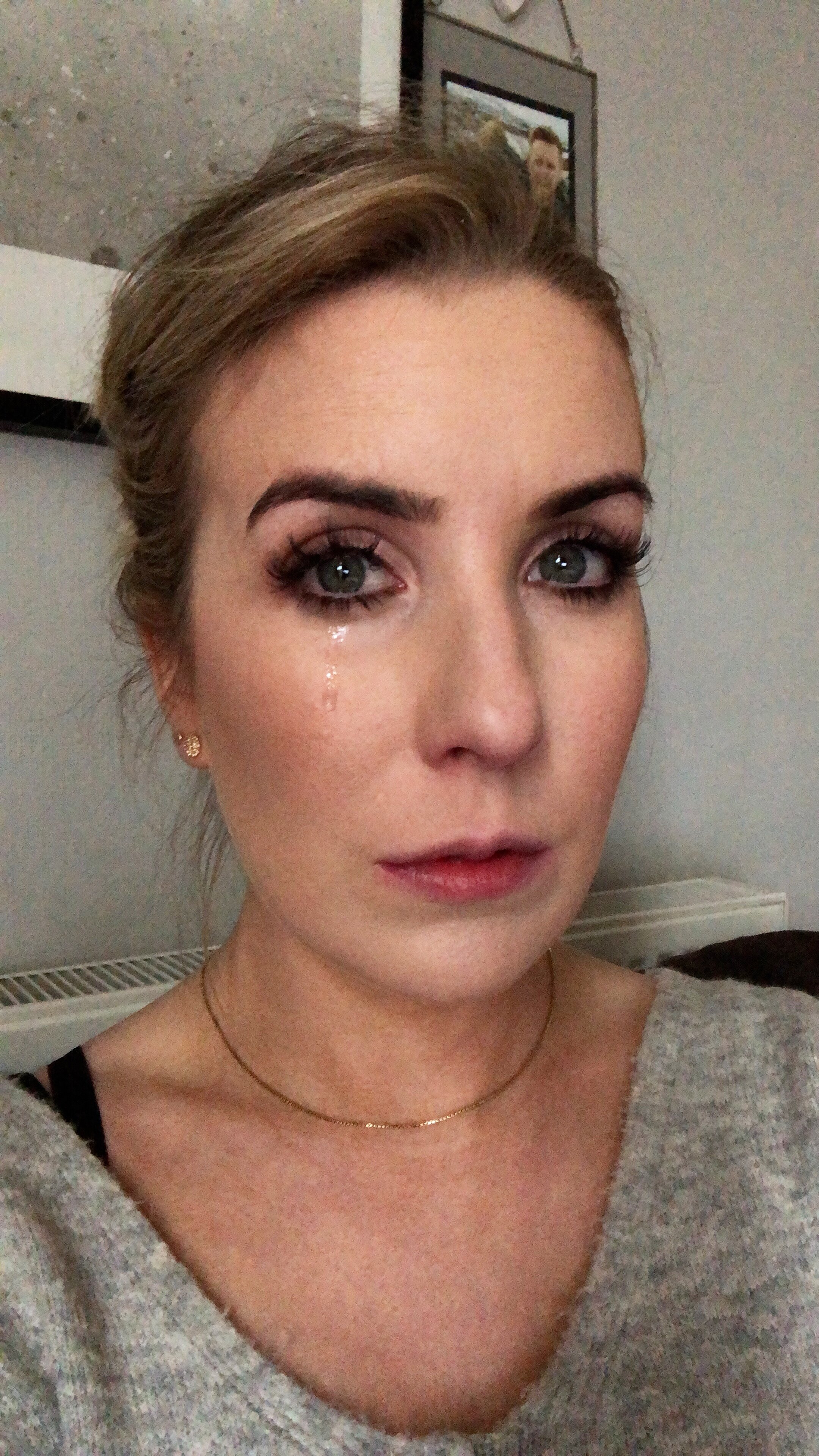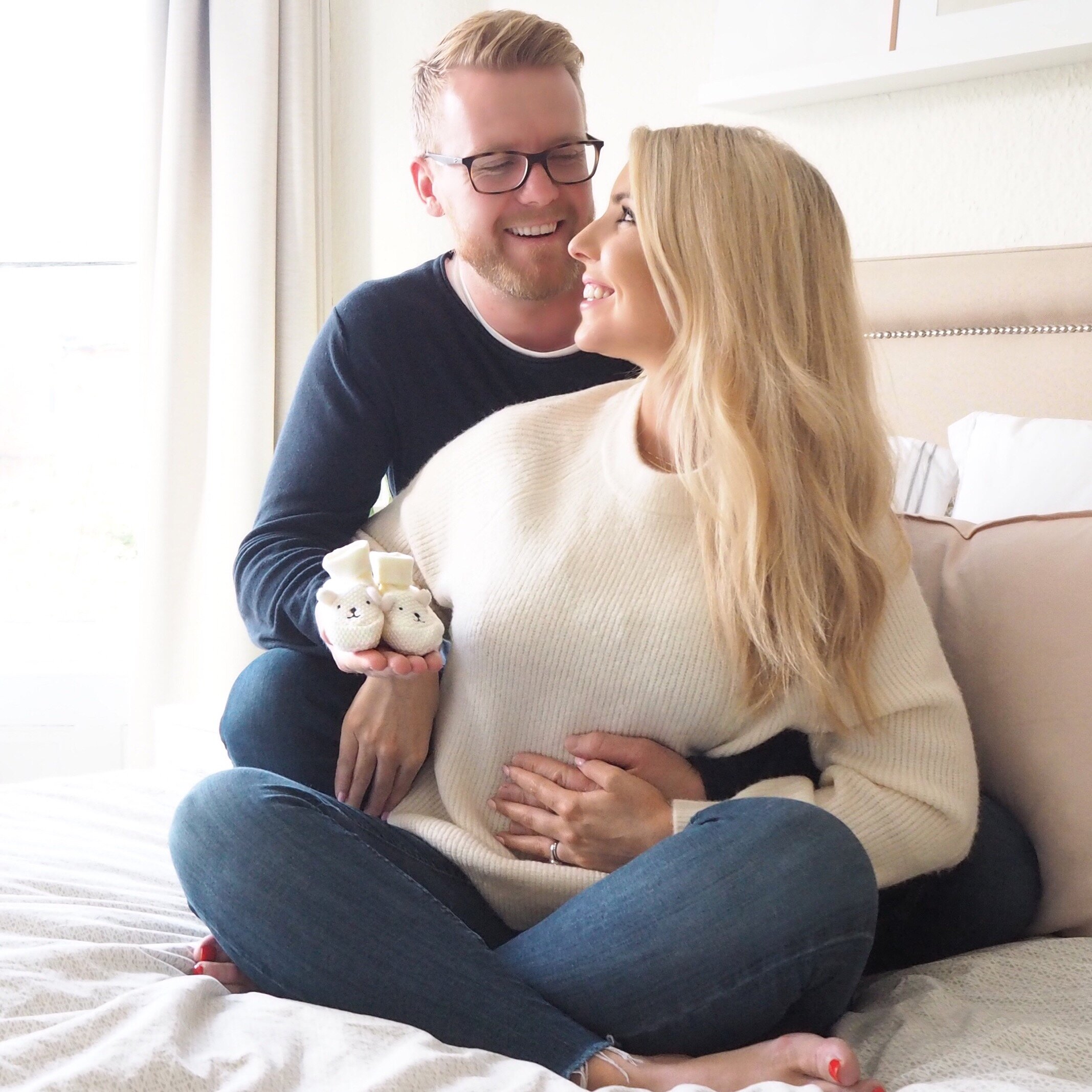“Do you want children?” A question that both Andy and I were asked too often. We would laugh it off and make our excuses, “Maybe next year!”, “I’m just focusing on my career this year!”, “We have a lot on this year, so maybe next!”, “Fiona is a bridesmaid at the end of the year, so maybe after that!”, but each time we were asked it felt like a gut-wrenching stab to the stomach.
Did we want children? Desperately. Was it that easy for us? No.
The face of infertility.
It really is easy for most people, but for us we were the 1 in 7 couples that have had difficulty conceiving. So the instant pregnancy we had planned didn’t happen and we didn’t know who to turn to and all because fertility isn’t talked about. Yet another taboo subject that makes people feel uncomfortable to talk about, yet it affects so many of us! So I am ready to tell our story to help reduce the stigma surrounding infertility.
Seeking help
We knew of a previous health issue that might cause us some problems conceiving, but were told by a doctor that we should have no issues when trying to conceive. So after about 5 months of trying had failed, we decided to seek professional help. Please remember that no one wants to admit that they might have a problem, but if you’re over 30 and have been trying for a year, then it’s best to seek medical advice. In Northern Ireland, the NHS can not treat you for fertility issues unless you have been trying to conceive for over two years. Two years is a hell of a long time to try without the stress getting to you! So just remember that they have no way of knowing how long you have been trying for - so keep that in mind when you’re visiting your GP!
Infertility Diagnosis
First of all, both of you need to visit your GPs. The man will have a physical examination by his GP - a wee check of the balls and penis to make sure everything looks well and sometimes a urine test to check for Chlamydia. The GP will then make a referral to a specialist infertility team for further testing. Typically, the first step will be a sperm analysis. The man will go into a little room with magazines (not Good House Keeping) and will ‘produce a sample’, which is then examined. The key things they are looking for is the number of sperm (the count), the motility (movement) and morphology (the shape). In simple terms, fertility testing on a man is a walk in the park. For women it’s also a walk in the park, but that park is Jurassic Park.
Ok, that’s a bit of a joke and I don’t want you to feel frightened! It’s just that testing on women is a bit more involved and uncomfortable. But remember that all you’re looking for is an answer as to whether there’s a problem and you’re getting closer to your end goal of having a baby!
For women, your GP will ask a lot of questions about contraception, how regular your period is, whether you track ovulation, medication that you’re on, medical history, lifestyle and may do some testing themselves, such as a physical examination (in case there is any tenderness) and blood tests (to check for progesterone). They will also weigh you to check that you have a healthy BMI and if you don’t, they will recommend that you try to lose weight. Further to this, you will be offered a referral to see a gynaecologist.
We wanted answers quickly, so decided to pay privately and went to a renowned fertility specialist. We showed him the previous results that we had through the NHS. He did some testing, poking and prodding, sat us down and told us that it was unlikely that we would ever be able to conceive naturally as, “…you can’t change your genetics!” We were given a 4% chance of conceiving naturally, if we tried for the next year. We didn’t like those odds.
When I visited the gynaecologist, I had had a transvaginal ultrasound - this is where a long probe is inserted into the vagina and the doctor will look at your uterus, fallopian tubes, ovaries, cervix and vagina. They will even go into so much detail that they can check which ovary you last ovulated from! I had an AMH test - this helps to estimate a woman’s ovarian reserve, or remaining egg supply. And finally, a urine test to check for Chlamydia.
The consultant was quick to recommend ICSI fertility treatment. ICSI is a form of IVF, with the only difference being how the eggs are fertilised. With ICSI, eggs are collected from the ovaries, placed into a little dish and sperm are individually injected into each egg. With luck, after 5 days there if there is a good embryo, it is implanted into the uterus. It sounds straight forward, but with all forms of IVF, the success rates are unfortunately not in your favour. We were lucky enough to see a second consultant via the NHS only two weeks later. We decided to proceed with the NHS, just in case things would move quickly. After a few months, we were added to the NHS waiting list and were given a wait time of 12 months for ICSI treatment.
The difference between IVF and ICSI as a means of fertilisation. (Image via: https://babygest.com/en/icsi/)
Within that time period, there is always hope that you might fall pregnant naturally…and hope is a bitch! Every month, when I felt tenderness in my breasts, I hoped that it might be a symptom of pregnancy. When cramping started, I would convince myself that they could be implantation cramps (something I knew nothing about prior to turning into a ‘trying to conceive’ Google expert!). All hope was lost as soon as my period started and we are right back to square one again. Patiently waiting for another month for our chance to try again.
I watched as my friends fell pregnant, happy for them, but feeling SO guilty that the happiness was overshadowed by my own sadness.
Exploring Other Avenues
(First of all, I should make it clear that I am not a doctor or a nutritionist, so any changes you are making to your diet and lifestyle should be discussed with your doctor. We are all different, so what is good for one person might not be good for another!).
I wasn’t happy with the concept that we couldn’t do ANYTHING to improve our chances. So I decided to explore Eastern medicine and turned to my friend, Maria Rafferty (@thehormonehealthcoach), for help. Maria is a Chinese medicine expert who specialises in acupuncture, fertility massage and women’s well being.
One of my sisters, a doctor, said to me that there is not much point in us proceeding with ICSI quickly, because both Andy and I would need to prepare our bodies first. She said you can not make a healthy baby without both a healthy egg and healthy sperm - this made a lot of sense to me! Maria confirmed this when she said she would need to treat both Andy and I as a couple. This is why it is so important to be on the journey 100% together - no blame is assigned to one person, just a team approach to making things better! She likes to see the men at least once, regardless of their sperm test results. She looks to ensure there is no blood stasis (and releases this via blood letting) and inflammation. Also, sometimes a bit of an eye opener about a healthy lifestyle is better told to a man by someone other than his wife :)
In my first session with Maria, she taught me how to do a Maya abdominal self-massage. This is a great way to help you, help yourself! The massage is very simple and consists of a sequence of gentle movements covering the whole abdominal area. The Maya massage is great for fertility because you are promoting the flow of healthy blood in and around the uterus. You also remove congestion from the area (a cause for period pain) allowing the blood to move freely. It also helps to balance the uterus (for example, correct a prolapsed uterus) and helps reduce bloating - win! When I asked Maria how often I should do the massage she said, “Only on the days you brush your teeth!” So every night before I went to sleep, I would massage my stomach with massage oil for a little self-care time!
I visited Maria every week for acupuncture, which has been scientifically proven to increase your chances of conception by up to 70%. They are unsure as to whether this is a placebo affect, or whether the acupuncture is actually helping, but either way it is worth trying and it’s also a gorgeous way to relax for an hour! You can read more about this in a post by the NHS by clicking here.
Maria looked at our diets and lifestyle and gave us both suggestions on how to improve our chances of conception. To keep this simple, it is largely about consuming only what’s good for your body, staying active (walking each day is fine), resting and relaxing!
Maria gave me herbal teas to combat ‘Liver Qi Stagnation’, which is whenever your liver Qi is blocked or slows down due to stress.
To maximise your fertility, it is important to make an assessment of your lifestyle and diet, your relationship and your work-life balance, and also your knowledge and awareness of your own fertility. Just remember that mind, body, emotional and psychological factors such as stress levels or poor diet and how you manage them can all adversely affect your chances of conception.
In short, Maria explains that IVF often isn’t the answer. You still have to prep, both of you! Often it’s the simple changes that make the biggest difference. Maria educated us to help ourselves, which feels like a relief in a scenario where you normally feel completely powerless. Then she gave us lots of ‘homework’ to do so that we gained back a bit of control. Here are some of the things Maria sent us home to work on…
Maria’s Advice
Eat gluten free to reduce inflammation in the gut - Andy joined my gluten free lifestyle. He wasn’t 100% gluten free all of the time, but really tried his best!
Reduce caffeine - you have to do this anyway when you get pregnant, so may as well start now! Andy cut down from about 8-10 cups of coffee a day (plus tea - I’m serious, this isn’t an exaggeration!) to only one cup of coffee in the morning. Men who drink 3 or more cups of coffee a day are only half as likely to get their partner pregnant! In women, caffeine can also interfere with ovulation.
Reduce Alcohol - especially try to avoid hard alcohol like spirits. We still drank wine at the weekends, but tried to keep it only to 2-3 glasses so we weren’t binging.
Avoid processed foods
Reduce stress - I am a manager in a busy environment and my job is quite high stress. On top of that, my blog, my Instagram and my social life doesn’t leave much time for downtime! Maria stressed the importance of reducing stress because it can affect your chances of conception.
Avoid strenuous exercise - goodbye spin class and body pump! Maria favours walking, yoga and gentle exercise.
Tracking Ovulation - I had originally signed up to an app, where you use a thermometer each morning as soon as you wake up to check your temperature, which in turn will tell you if you are ovulating or not. I found this quite stressful, especially on days where I forgot and the little beeping noise used to wake Andy up! Maria suggested that this isn’t an accurate way of tracking your ovulation because your temperature can vary so much depending on what you have drank, ate, whether you’re slightly unwell, etc. Instead, she told me to get rid of the technology and ovulation sticks and rely on my body to tell me when I was ovulating. I did this by tracking my fertile mucus (I know, if only they came up with a better name!) and here is a little diagram to show what to look for:
Image via verywell.com
Maria prescribed me a herbal medicine and both of us different prescription medicinal mushrooms (don’t google this, it’s like using a Lemsip as an antibiotic). If Andy had of been overweight, or if there was too much damp in his body, inflammation, or blood stasis, Maria wouldn’t have given him anything because it would have caused him more problems. This is why it’s important to see the right practitioner! We called these mushrooms our “magic beans” - i.e. we would buy anything from anyone to get pregnant! However, we didn’t expect the results to be so good. The most noticeable difference was in Andy. He went from being quite sluggish (a frequent nap taker) to being full of energy.
Maria emphasised the fact that we needed to make changes at home and rather than looking at it as trying to get pregnant, we should look at it as nurturing our bodies! Sometimes this can involve taking a break from trying to get pregnant, but it’s best for the long run!
I mentioned to Maria that we wanted to pay privately for ICSI treatment as we still had another nine months to wait and it felt like a lifetime. She suggested that we wait another four months to allow more time for the efforts we had made to pay off. I fell pregnant the next month. Unfortunately, my pregnancy ended at 9 weeks when I miscarried, but I then miraculously fell pregnant again the month after miscarrying. We really believe that this is completely down to following Maria’s advice. We were given a 4% chance of falling pregnant naturally within one year and managed to fall pregnant twice within 5 months!
You can follow Maria on @thehormonehealthcoach.
Supplements
Further to our work with Maria, we researched vitamins and supplements. Maria also gave me some good advice on this, for example, not to take Pregnacare because it has some dodgy ingredients. It’s important to remember that the best thing to do is eat a well balanced diet and then you shouldn’t need to supplement. So if you’re going to eat crap and take supplements, don’t expect big things to happen! We each had our own little pill boxes to keep on top of what we were taking. Again, I am not a doctor, just did a lot of research! So before supplementing your diet, check with your GP. Here is what we took each day:
Vitamins & Supplements for Her
Folic Acid - can help to reduce the risk of birth defects. Anyone with Coeliac disease, IBS or any inflammatory gut issues should contact their GP and request a prescription of 5mg Folic Acid. Ideally take at least 3 months before TTC. If you don’t have any gut issues, these are good to buy.
DHA (omega 3 fatty acid) - essential for healthy hormone production and promotes the health of eggs. It also helps to reduce inflammation. and Click here for the one I took.
CoQ10 - found to reduce chromosomal abnormalities in eggs.
Vitamin D - improves overall fertility and in the UK a lot of people can be deficient in Vitamin D from September to March (because we don’t get enough sun).
Zinc - perfect to ‘attract and hold’ oestrogen and progesterone.
Selenium - an antioxidant that helps protect your body from free radicals. Selenium helps to prevent chromosome breakage, which can cause birth defects and miscarriage.
Vitamins & Supplements for Him
Folic Acid - may improve sperm count in men.
Vitamin C - helps with sperm health and motility.
Selenium - good levels of selenium are essential to maximise sperm formation and sperm count.
CoQ10 - supposed to help sperm motility, which gets them where they need to go faster!
Omega 3 - sperm is rich in prostaglandins which are produced from Omega 3 fats. If a man has poor sperm quality, abnormal sperm, poor motility or low count, they have inadequate levels of these beneficial prostaglandins. Best to supplement!
Vitamin D - again, great to take to boost overall fertility and because we are likely to be deficient in it during UK winters!
Zinc - a must have for the guys! Improves sperm motility and boosts the general quality of the sperm.
My Advice to you
Sex is like going to the gym. Having sex to conceive isn’t like they show you in the movies. Sometimes you are very much NOT in the mood, but get it done anyway. I always said that sex is like going to the gym, even when you’re not in the mood for it, you never regret it afterwards! (Sorry if you’re reading this dad!).
Sex won’t be the same. Regardless of the lies people tell you, sex will not be the same as before. Yes it’s bloody fantastic, but there’s nothing to take the sexiness away than instantly wondering if that time could have done the trick. Trying to conceive is NOT the same after months and months of trying. The people who tell you it is fun, haven’t tried for very long! But like I said before, you will never regret it - it’s just different than before!
Don’t stand on your head. Try your best to ignore advice from friends who tell you to have sex in a certain position, or to prop your bum up after sex, or to put your legs in the air after sex, etc. There is no medical evidence that any of this works and it actually just adds extra and unnecessary tension. You want to be relaxed as possible after sex to allow the wee swimmers to do their work.
Don’t use apps or sticks to track your ovulation, just be aware of your body and you’ll know when you’re ovulating.
Have sex 2-3 times a week. That’s all you need to fall pregnant and is the best thing to do to maximise your chances. Sperm can live in the female body for up to 5 days. That will give you a permanent supply and will be there and ready when you ovulate!
Positivity. People ask, “How did you stay positive?” and the answer is…I didn’t! I wasn’t positive, but I did still hold onto hope. What helped this is Andy was incredibly positive and really tried to push my mind into the right place. He was always convinced that we would fall pregnant naturally and I think if it weren’t for his positive attitude, I would have been a wreck.
It’s ok to not be ok. This has been the most stressful and testing journey of my life. It is really important to be kind to yourself if you’re going through the same. Having down days is fine and it’s important to talk and have a good cry. You just can’t let it consume you, every day can’t be a down day.
Sharing your problems. I am an over-sharer, but when it came to this, we chose to keep it to ourselves for the majority of the time. We didn’t want people constantly asking for updates as we didn’t want to add stress. When we knew that there was a problem, we decided to tell family and our best friends, because we needed the support.
Your goal is to have a baby. Of course conceiving naturally is the best case scenario, but if you DO end up having to get fertility treatment, just remember that you’re getting closer and closer to your end goal! If you are waiting for IVF treatment, I would strongly recommend acupuncture and yoga - both are great for the body and mind!
We tried to conceive for a year and a half before falling pregnant. It’s not as long as some, but it was a tough journey and hard to remain positive. There were so many times were I have felt totally lost, lonely, angry and frustrated.
A doctor we spoke to said that there should be a public service announcement letting people know that it is not okay to ask people if they want children or if they are trying to get pregnant.
This public service announcement doesn’t seem to have happened yet. So in a way, I guess this blog post is it. It is me writing to you, desperately asking you not to ask your sister, your best friend, your work colleague or someone you follow on social media when they are planning to get pregnant. Please remember that just because someone has already had a baby doesn’t mean that they have no issues. Secondary infertility shares many of the same causes as primary infertility. By asking these questions, you may be causing unintentional pain without even knowing.
This is also me writing to everyone who feels lost and alone. You are not alone, there are so many people going through the same struggles as you and all you need to do is reach out for support! If you don’t have any close friends going through the same thing as you, reach out to people on social media who are openly going through it too!
I was 10 weeks pregnant with our little rainbow baby when we received two letters from the NHS. The first letter was giving us the date for our first scan and the second letter was from the fertility centre to let us know that we had reached the top of the waiting list (months early!) and were now ready to receive ICSI treatment. Making the phone call to tell them that I was pregnant was one of my favourite calls ever! I was so happy to pass the opportunity onto another deserving couple, who no doubt wanted a baby just as badly as we did!
Even miracles take a little time!
Fx













